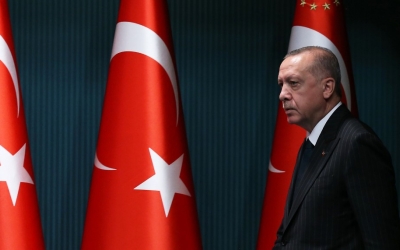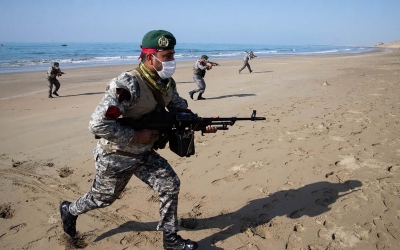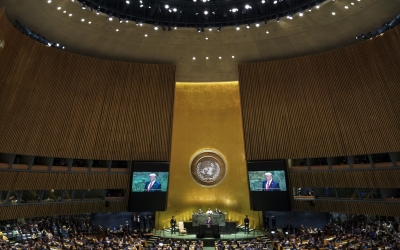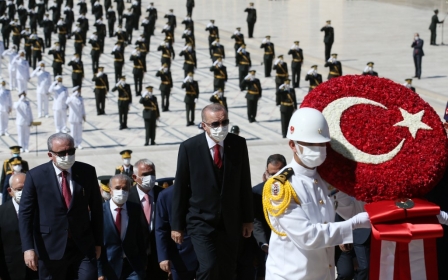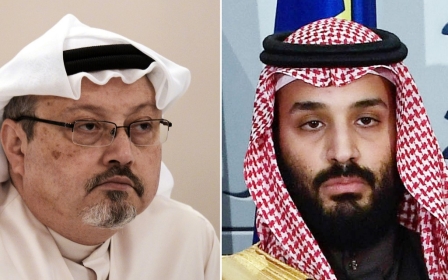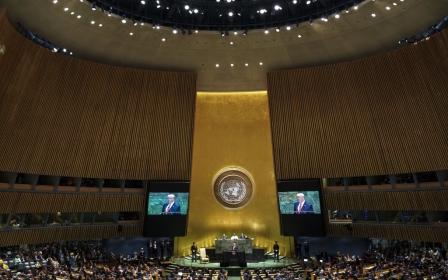UAE accuses Turkey of trying to restore 'colonial rule' over Arab world
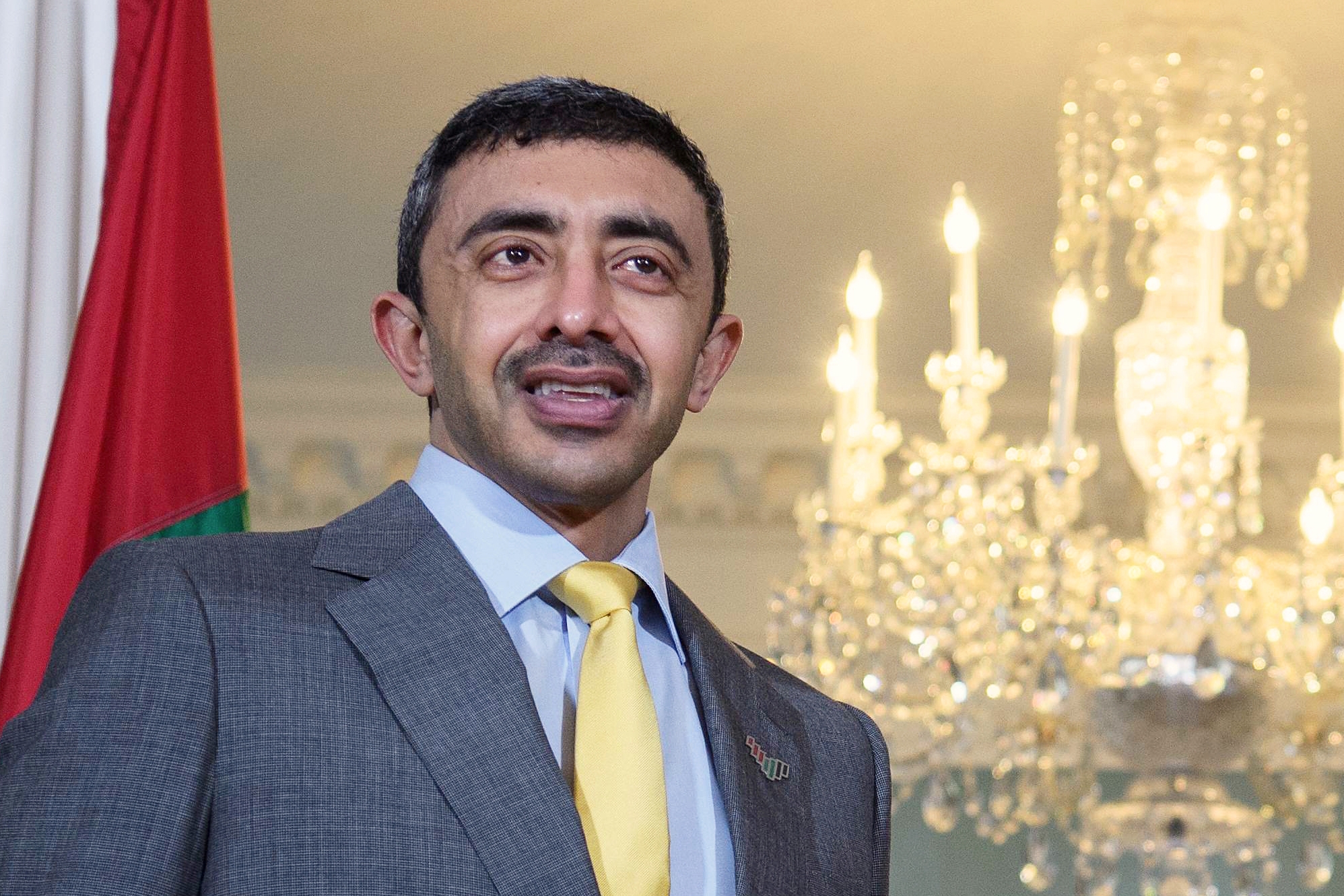
The United Arab Emirates has lashed out at "interference" in Arab affairs and defended the decision to normalise ties with Israel.
Speaking at the United Nations General Assembly on Tuesday, Emirati Foreign Minister Abdullah bin Zayed said foreign powers were trying to restore "their domination and colonial rule" over the Arab world, an apparent reference to Abu Dhabi's regional foes Turkey and Iran.
"The tensions in Yemen, Syria, Libya, Iraq and other states are all related to blatant interference in Arab affairs made by states that incite strife and discord, or that have historical delusions of restoring their domination and colonial rule over the Arab region and the Horn of Africa. The result has been brutal wars," he said.
"In this context, we recall our firm position of rejecting regional interference in Arab affairs, and request full respect for sovereignty which is fully consistent with international law and international norms."
Bin Zayed addressed the international body during the second week of the General Assembly, an annual meeting of leaders of UN member states.
This year, due to the novel coronavirus, most of the meeting is being held with pre-recorded messages.
The United Arab Emirates' chief diplomat also criticised Turkey's role in Libya, saying its actions had "undermined efforts to reach a peaceful solution and destabilised the entire region".
Libya has been wracked by violence since 2011 when a Nato-backed uprising overthrew longtime ruler Muammar Gaddafi. Since then, multiple foreign powers have become involved in the country.
Following disputed elections in 2014, the country has been divided between competing administrations, with the UN-recognised GNA supported by Turkey while the UAE and Egypt have backed eastern military commander Khalifa Haftar.
'Return these islands to their rightful owners'
Bin Zayed also referenced neighbouring Iran during his speech, saying the UAE should be a key partner in drafting the terms of a new nuclear agreement.
Since Washington's unilateral withdrawal from the international nuclear deal with Iran in 2018, US President Donald Trump's administration has reimposed sanctions that had been eased under the accord.
Iran, in turn, has gradually breached the central limits in that deal, according to the International Atomic Energy Agency (IAEA), including on the size of its stockpile of low-enriched uranium as well as the level of purity to which it was allowed to enrich uranium.
"My country is particularly concerned that the restrictions imposed on Iran under the nuclear agreement are soon due to expire," Bin Zayed said.
"Since the nuclear agreement did not achieve its desired outcome, we hope that this experience will be useful in achieving a more comprehensive agreement that addresses the concerns of states in the region and that makes them key partners in drafting the terms of the agreement."
The Emirati envoy also accused Tehran of occupying Abu Musa and the Greater and Lesser Tunbs - three islands strategically positioned at the mouth of the Strait of Hormuz that were taken over in November 1971 when British forces withdrew from them.
"The UAE will not give up its demand that Iran return these islands to their rightful owners," he said.
On Yemen, where the UAE and Saudi Arabia intervened in 2015 after Houthi rebels took over much of the country, bin Zayed said a political settlement must be decided by the Yemenis themselves.
"We strongly believe that stability in Yemen can be restored, especially within the current environment that could lead to a complete ceasefire and a permanent political solution under the auspices of the United Nations."
While the UAE has often portrayed itself as an oasis of tolerance in the region, critics point to Abu Dhabi's leading role in the conflict that has seen more than 100,000 people killed as a blatant violation of human rights.
The Arab coalition has carried out more than 20,000 air attacks on the country, with one-third striking non-military sites, including schools and hospitals, according to the Yemen Data Project.
'No peace while occupation continues'
The UAE foreign minister also defended his country's decision to normalise relations with Israel, saying the agreement had frozen Israel's annexation of parts of the occupied West Bank.
"With the signing of the historic peace accord with Israel, supported by American efforts, my country was able to freeze the annexation decision and opened broad prospects to achieve a comprehensive peace in the region," he said.
"We hope this peace accord will provide the opportunity for the Palestinians and the Israelis to re-engage in negotiations to achieve peace."
Despite his claims, Israeli Prime Minister Benjamin Netanyahu, as well as several US officials, have maintained that annexation is still on the table.
The Palestinians have blasted the deals signed by the UAE and Bahrain with Israel as acts of betrayal.
President Mahmoud Abbas used his UN speech on Friday to stress that his government has not given a mandate to anyone to speak or negotiate on behalf of the Palestinian people.
Abbas said that the only path for lasting peace is an end to the Israeli occupation and the creation of a Palestinian state.
"We will not kneel or surrender, and we will not deviate from our fundamental positions, and we shall overcome," Abbas said, speaking behind a plaque that read State of Palestine.
"There will be no peace, no security, no stability and no coexistence in our region while this occupation continues."
Middle East Eye delivers independent and unrivalled coverage and analysis of the Middle East, North Africa and beyond. To learn more about republishing this content and the associated fees, please fill out this form. More about MEE can be found here.


